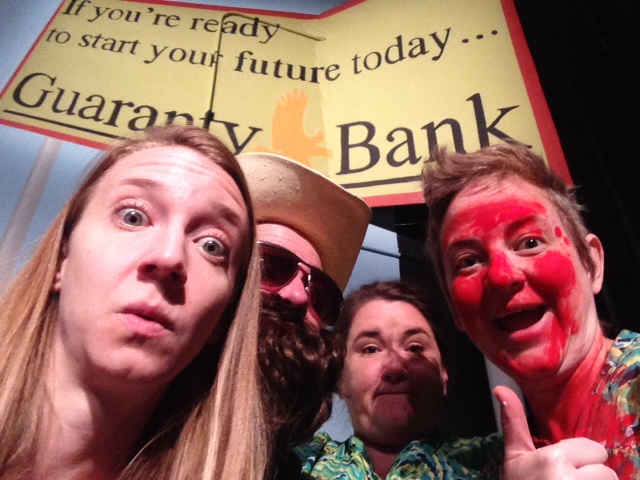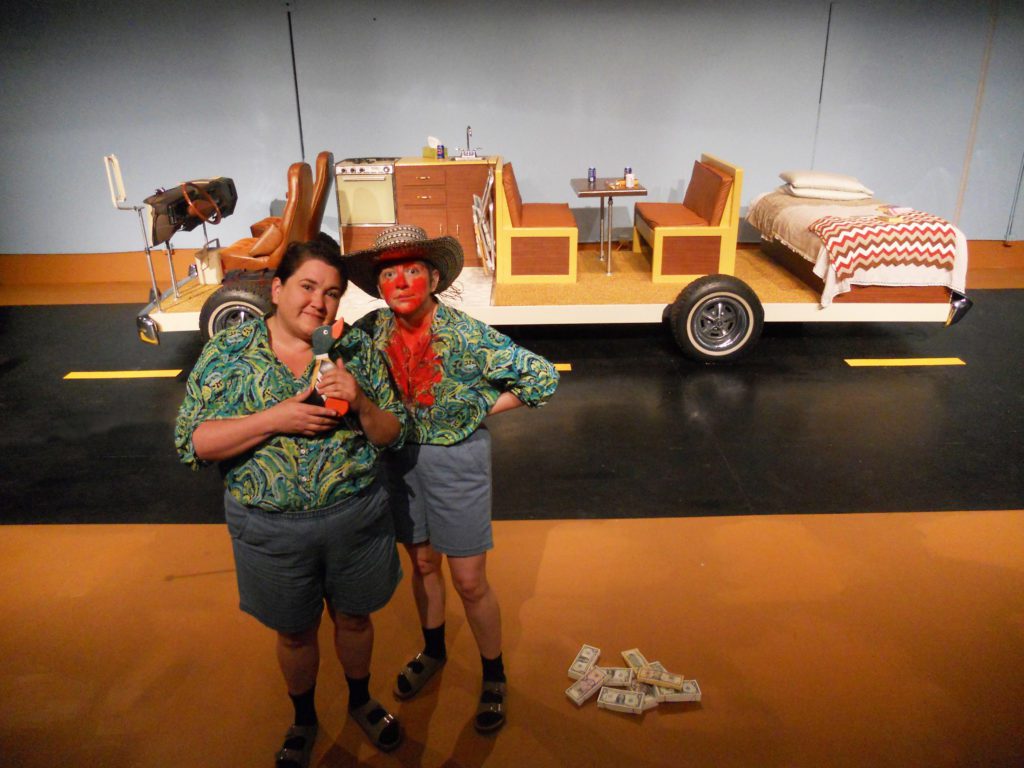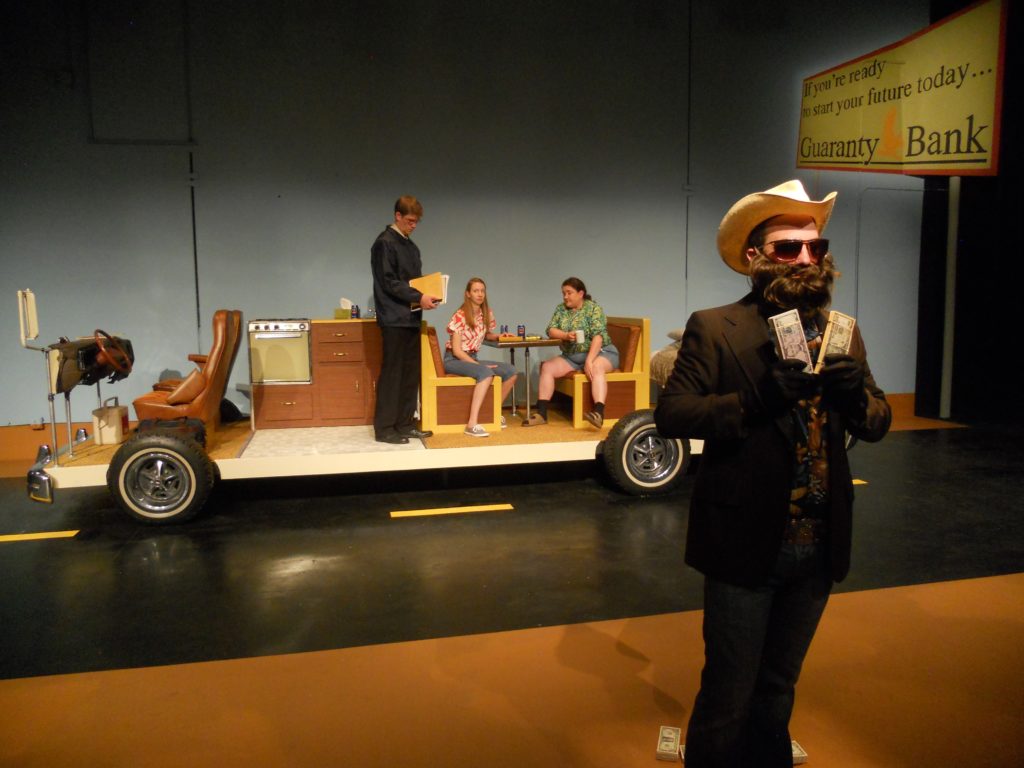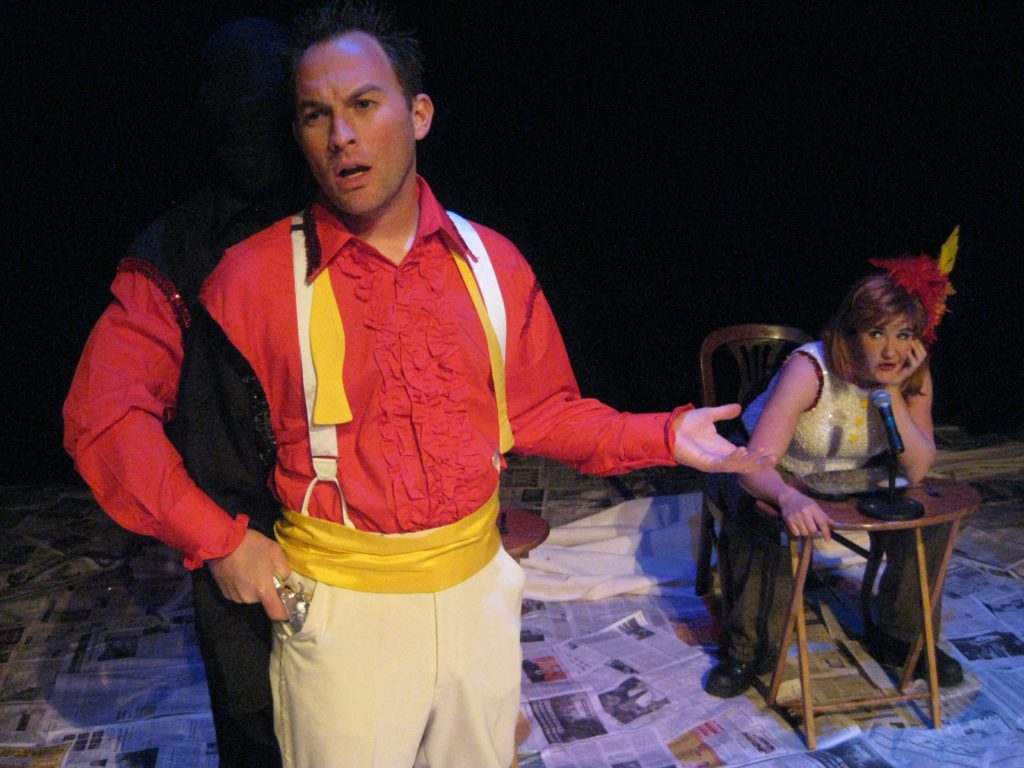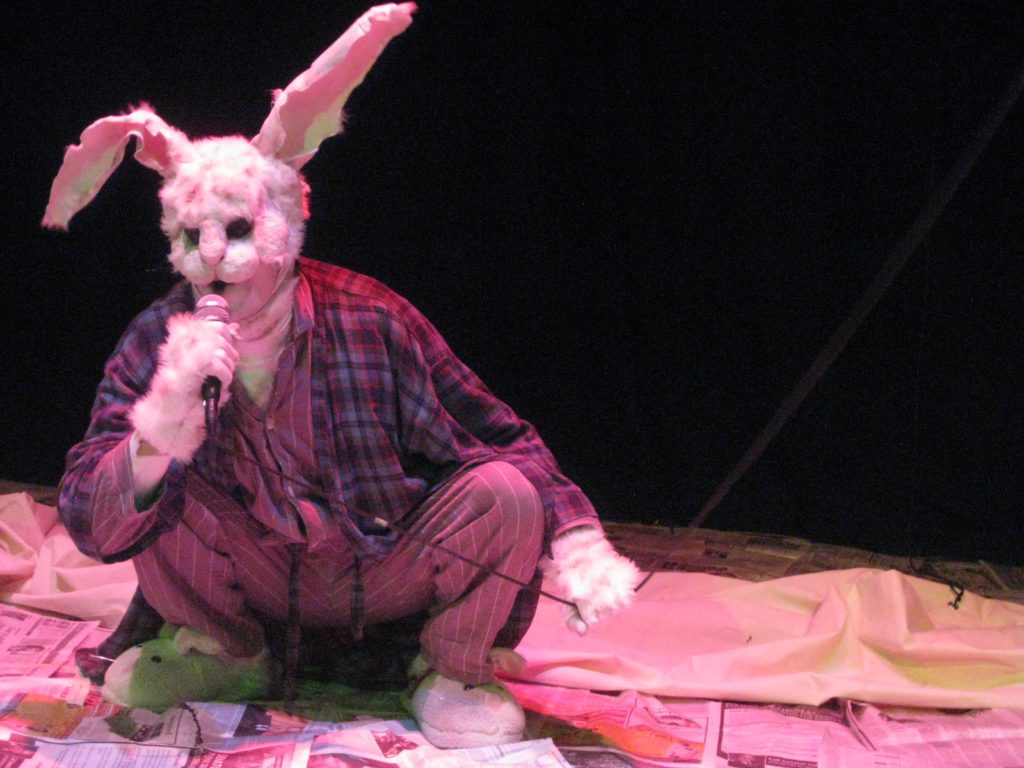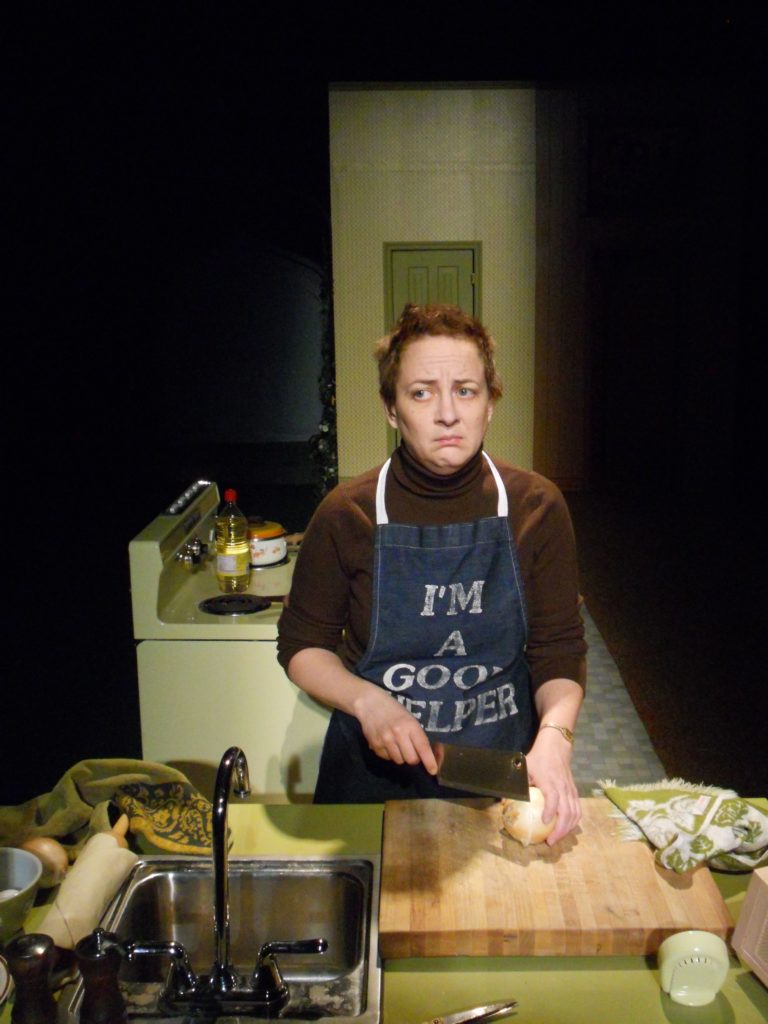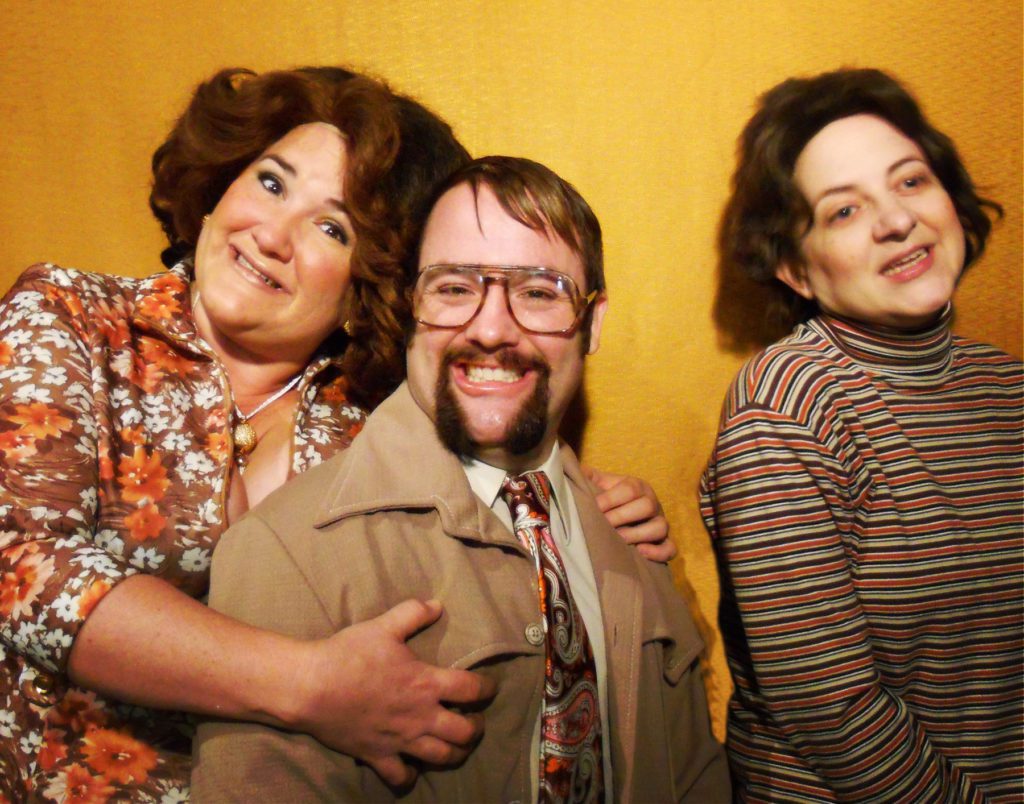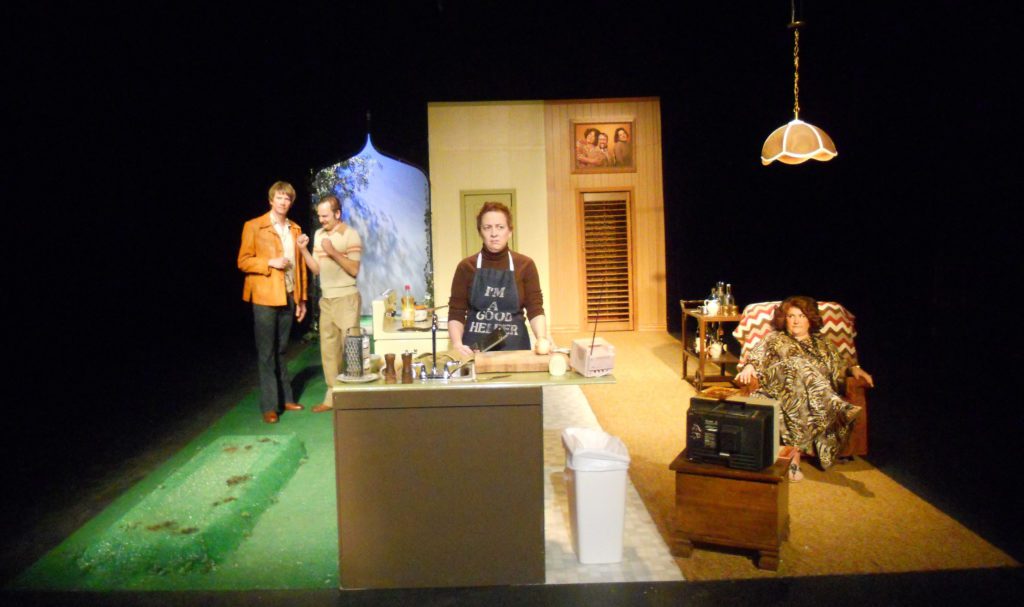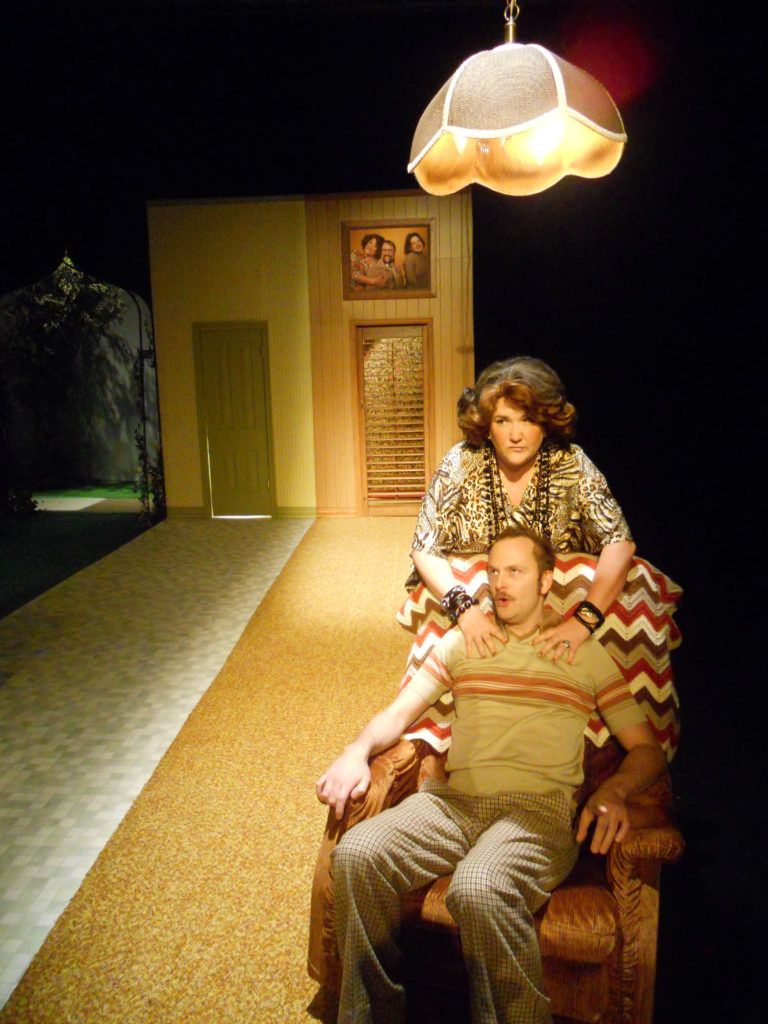The bearded bank robber in the cowboy hat was a pro. He would walk calmly into a bank, hand the teller a note, wait for his bag to be filled from the cash drawer, walk out, and disappear, without ever brandishing a weapon. For years, the FBI couldn’t track him down. Then, one day, “Cowboy Bob,” as the agents called him, changed his modus operandi and, lo and behold, he turned out to be a she.
So goes the true story of Peggy Jo Tallas, a polite, fun-loving dame from the suburbs of Dallas, who spent much of her adult life working odd jobs and taking care of her mother, who suffered from a degenerative bone disease. When Peggy Jo got caught the first time, none of her family or friends could believe she was robbing banks.
In its 35th original production in 13 years, Buntport Theater Company, in conjunction with Square Product Theatre, pulls another wild hare out of their collective magicians’ hats, splitting the different faces of Peggy Jo between Emily K. Harrision, Hannah Duggan, Erin Rollman, and Brian Colonna, while Erik Edborg weighs in as FBI Agent Steve Powell, Peggy Jo’s relentless, but good-natured, pursuer.
Like a Greek drama performed in masks with a time-lapse twist, each of the faces of Peggy Jo represents a different moment in her journey, with Harrison, Duggan, and Rollman as her 40, 50, and 60 something year-old self, and Colonna as her Cowboy Bob alter ego; yet, they are all there at once, in the present; and like the Greeks, we know what’s going to happen, yet that does not diminish the humor or the catharsis.
The Buntporters and Harrison, each in their own inimitable fashion, bring out the weird convolutions of Peggy Jo’s mind, which she insisted, not without good reason, were normal. I mean, lots of people have watched Butch Cassidy and the Sundance Kid multiple times, and some of them have even read Ferlinghetti’s A Coney Island of the Mind. That one such person would take these artistic achievements to heart and put his or her life on the line for such a way of being is to be expected, isn’t it?
Taken together, the performances define a fascinating woman who understood what it was to live and not let the banksters get in the way of having a good time.
-Bob Bows, June 5, 2014, ColoradoDrama.com
